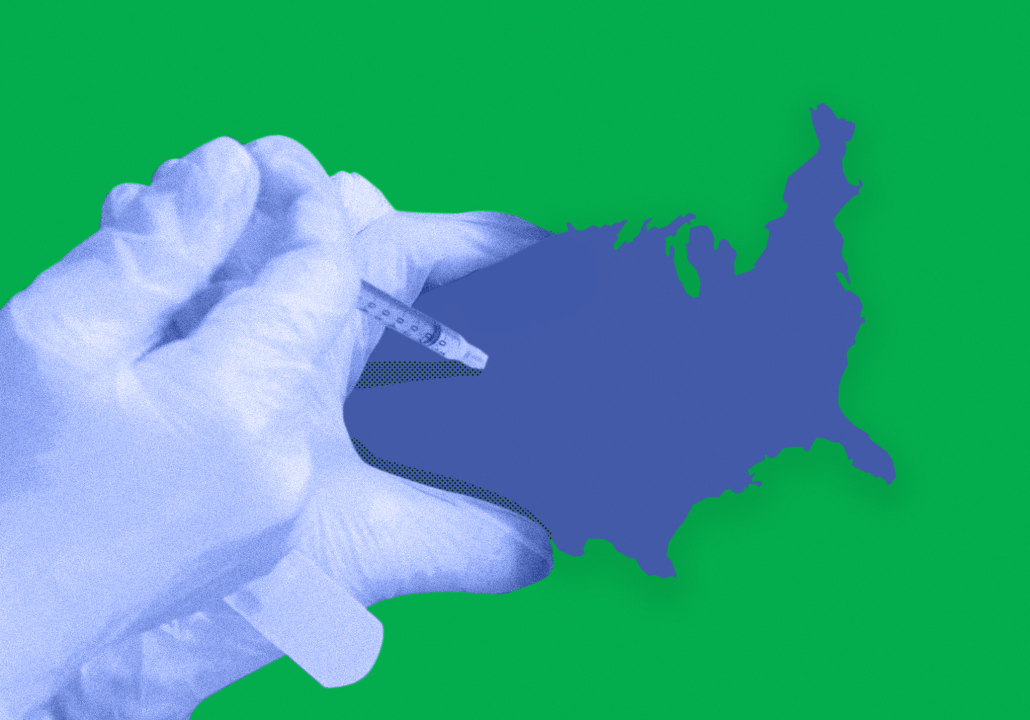Vaccines should not be a partisan issue
The coronavirus pandemic changed our lives in March 2020. At the time, a vaccine seemed far away and, for many, a pipe dream that would come to fruition in a few years.
However, because researchers have developed coronavirus vaccines for half a decade, producing a safe and effective SARS-CoV-2 vaccine did not entail starting from square one, which explains how we were graced with it so promptly.
Despite scientific evidence that the coronavirus vaccine is safe for recipients ages five and above, the resulting vaccine mandates have espoused controversy in virtually every corner of the United States. The prevailing question is why, and why now?
It is important to note, before examining the partisan divisions in opinions on vaccines, that a host of marginalized communities have expressed valid apprehension against the vaccine due to the way the medical community has taken advantage of them.
As relayed by Pew Research, “Mandatory childhood immunizations have been a feature of American society since the 19th century.” In the 19th century, scientific technology was not nearly as advanced as it is today with Dmitri Mendeleev just developing the periodic table.
In 2021, we face the same tacit resistance against science from over a hundred years ago. This time around, it is split starkly between political parties.
In a piece from the New York Times, “Vaccination Mandates Are an American Tradition. So Is the Backlash,” writer Maggie Astor compares vaccine requirements and their coupling backlash between now and past centuries. For example, the smallpox vaccine prompted a response similar to the backlash against the coronavirus vaccine as parents protested school vaccination requirements.
Although immunizations were marginally riskier than they are today, scientists develop them to prevent greater harm from the disease in question. Nonetheless, many people saw severe illness as preferable because of their obstinate subscription to the contested concept of liberty.
According to the Kaiser Family Foundation, the chilling reality is that vaccine attitudes are split among partisan lines: “As of September 13, 2021, 52.8% of people in counties that voted for Biden were fully vaccinated compared to 39.9% of Trump counties, a 12.9 percentage point difference. While the rate of vaccination coverage has slowed in both county groups, the gap has widened over time.”
These statistics are troubling for a variety of reasons, but mainly because party politics blur the line between science and political opinion. In a country that has only become more polarized, we cannot afford such disagreements that lead to a life or death situation.
In a collaborative study from Brown University and Stanford University, researchers found that, in comparison with other democracies including Canada, the United Kingdom, Germany and Australia, the U.S. is politically polarizing at a higher rate. We have to fight against this trend, but as vaccines become yet another issue that divides us, a resolution seems farther off.
Why have party politics devolved into disagreements on public health and science? It is true that there is a partisan divide in certain scientific issues such as climate change.
However, the pandemic has directly affected everyone and we all saw its devastating effects with our own eyes. Nonetheless, the decision to get vaccinated and end this pandemic is divided in a partisan way. Considering the general contention that accompanies the vaccine, it will be more difficult to fight this harmful polarization via productive conversations.
For one possible solution, universities could implement non-partisan information sessions at colleges and universities that address the questions and concerns young people may have about the vaccine. If we educate more young people about the vaccine, they can relay that information to other people in their life.
Another possibility would be for politicians from all sides of the spectrum to locally convene and host citizen forums to show people that vaccinations are safe for all, regardless of a registered political party. While this seems like a pipe dream considering the polarization between Democrats and Republicans, the reality is that politicians from different political parties come together all the time.
Our country can move past this difficult moment, as we have several times in history. In fact, this conflict can actually be a catalyst for bipartisan collaboration.


